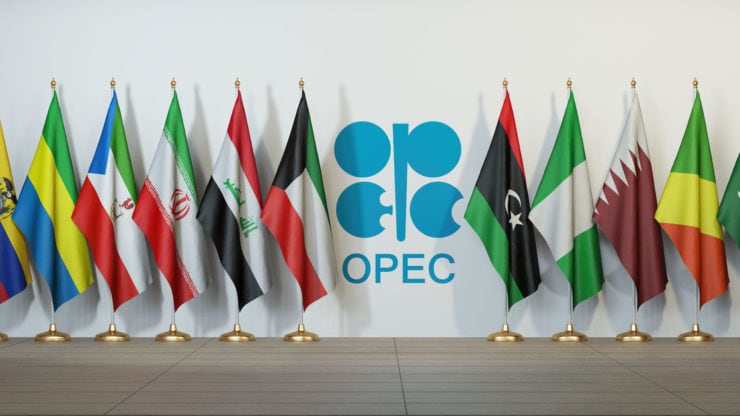The Organization of the Petroleum Exporting Countries announced on Wednesday that it has received revised plans from member countries Iraq and Kazakhstan, as well as other nations within the alliance, detailing their strategies to implement additional oil output cuts.
These cuts are intended to offset the overproduction that has occurred beyond the agreed-upon quotas set by the organisation in previous months.
The move signifies OPEC’s commitment to maintaining stability in the global oil market by ensuring that production levels align with the predetermined targets.
By addressing the issue of overproduction and implementing corrective measures, OPEC aims to prevent an oversupply of oil, which could lead to a further decrease in prices and negatively impact the economies of oil-producing nations.
OPEC and its allies, including Saudi Arabia and Russia have implemented steep oil production cuts since late 2022.
Currently, the cartel is withholding close to 6 million barrels per day of crude oil from the market. This translates into around 6% of total global oil supply.
These cuts also include a voluntary 2.2 million barrels per day reduction in output by eight OPEC+ countries, including Saudi Arabia and Russia.
The updated OPEC compensation plan increases monthly production cuts, now ranging from 196,000 barrels per day to 520,000 barrels a day, effective from this month until June 2026, the cartel said in an official release.
The previous plan had lower cuts, ranging from 189,000 barrels per day to 435,000 barrels a day.
Oil prices to get support
The oil market would be further supported if the planned production cuts are fully implemented.
This is due to the fact that these cuts would largely counterbalance the planned 411,000 barrels a day output increase by other OPEC+ members in May.
Eight members of the OPEC+ alliance, in a surprising move earlier this month, agreed to raise crude oil production by 411,000 barrels a day in May. This weighed on sentiments, and oil prices slipped as a result.
The cartel is scheduled to start unwinding its voluntary production cuts of 2.2 million barrels per day from April by increasing output by 135,000 barrels a day.
The market was expecting a similar rise in May as well.
However, experts said that the production increase would be minimal due to the compensation plans of member countries within the OPEC+ alliance.
At the time of writing, the price of Brent crude oil on the Intercontinental Exchange was at $66.01 per barrel, up 2% from the previous close.
Biggest overproducers
According to the compensation plans released by OPEC on Wednesday, seven members—Saudi Arabia, Russia, Iraq, the United Arab Emirates, Kuwait, Kazakhstan, and Oman—are responsible for the cuts.
Algeria is also included in the table but does not have a required cut. In May, six of the seven members will cut a total of 378,000 barrels per day.
OPEC+ has revised its plan multiple times due to member countries not adhering to the agreed-upon production cuts.
Iraq, OPEC’s biggest overproducer, intends to increase its efforts to meet its compensation cuts. Iraq’s crude oil allocations to customers for May shipments are significantly lower, according to a Reuters report.
The table in the OPEC press release indicated that Iraq and Kazakhstan have the largest overproduction amounts to be compensated for by June 2026, at 1.93 million barrels per day and 1.3 million barrels per day, respectively.
The post OPEC receives updated output cut compensation plans from Iraq, Kazakhstan and others appeared first on Invezz

